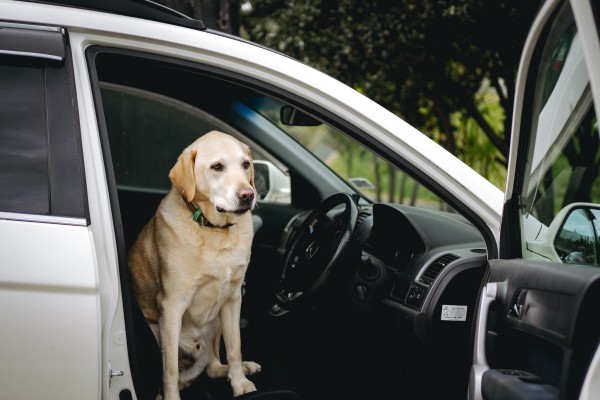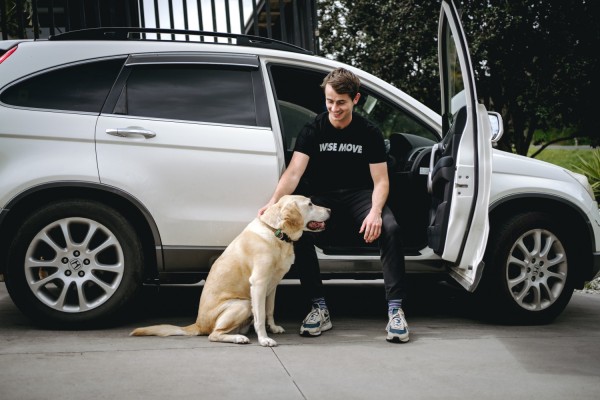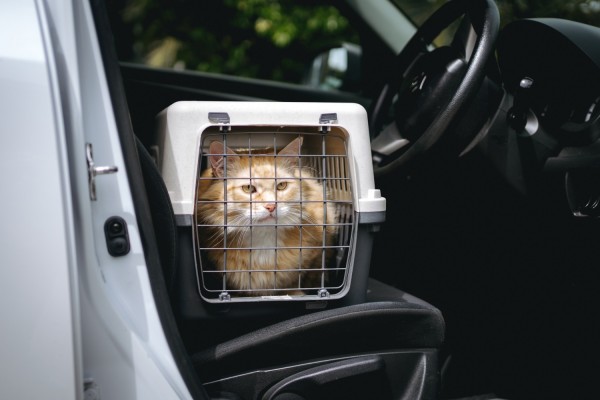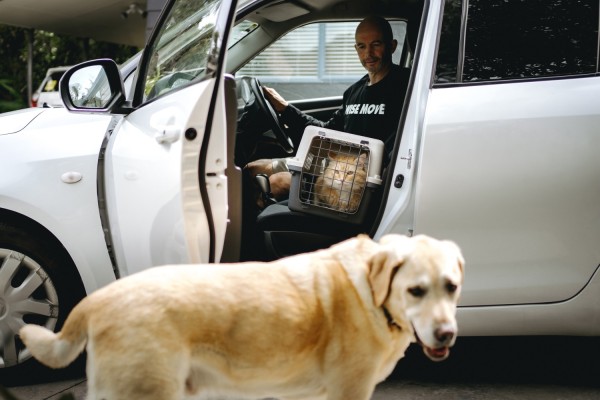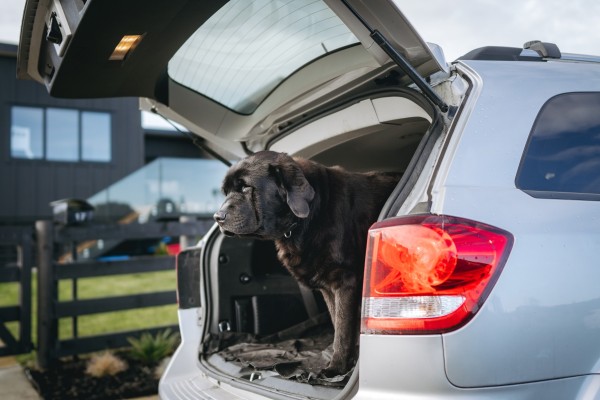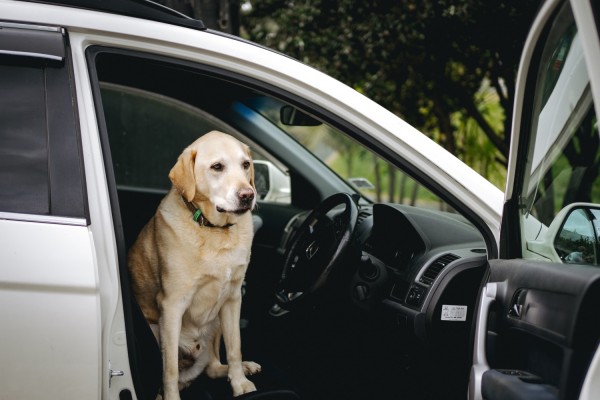Travelling With an Older Dog
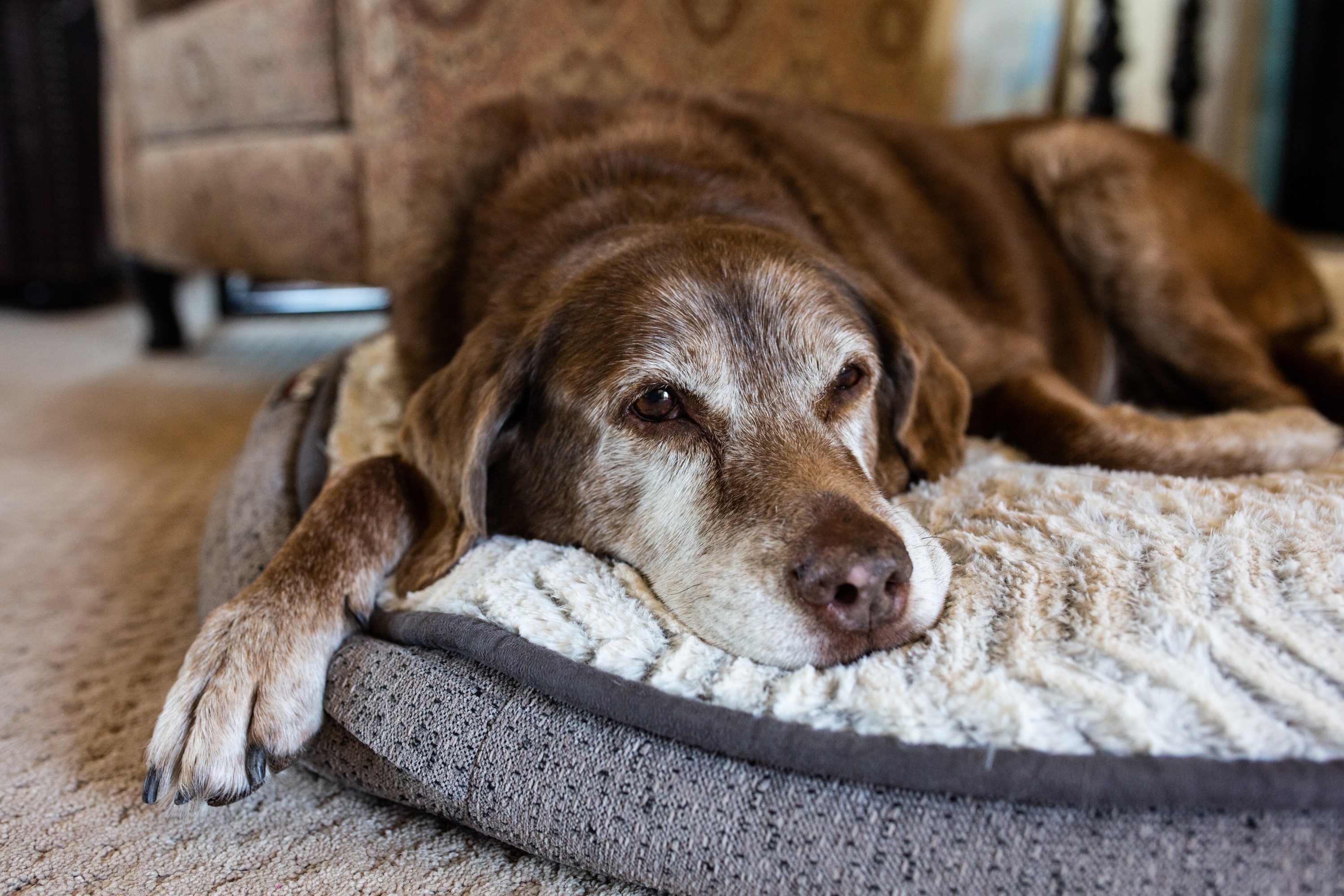
Many owners may worry about travelling with an older dog or even avoid travelling altogether for fear that the stress would be too much for their elderly companion to bear.
Your four-legged friend may have once accompanied you on your globetrotting adventures when they were younger but you worry about how they would cope with it now. Or perhaps your older dog has never been travelling before and you were thinking of taking them with you.
Whatever the case, there are some very important considerations to make before booking your next trip away.
Is my dog too old to travel?
Whether your dog is too old to travel will be contingent on many factors, and when your dog is classed as a ‘senior dog’ will depend on their size and breed.
For example, a small dog such as a Chihuahua isn’t classed as old until they’re 11+ years of age, whereas a giant breed dog such as a Great Dane may be classed as old at 7+ years of age. This is important to bear in mind when considering if your dog is too old to travel.
However, age is just a number after all and it’s only one factor in the equation. Travel, whether it be by plane, car or boat, is stressful and how well your elderly dog can deal with this stress will determine their fitness for transport.
Heat, motion sickness, poor air quality and lack of movement or comfort are all things that your dog must contend with on a long journey. Therefore, the general health of your dog and any underlying health conditions that they may have must be factored in
Conditions might limit your dog’s ability to travel
Some elderly dogs may have painful joint conditions, a loss of sight or hearing, or bladder or bowel incontinence – these are all reasons to think twice before travelling with your dog.
Arthritis: Arthritis is a condition that commonly affects older dogs, especially larger breed dogs. This results in inflammation and pain around the joints, and your dog may struggle to get into certain positions. Staying immobile for long periods of time isn’t ideal for dogs with arthritis either as movement helps to lubricate and stretch their joints.
Cardio-respiratory conditions: Travel should also be limited for dogs with heart or breathing conditions as the stress and/or heat could tip them over the edge. It’s also important to consider that if your dog has an underlying condition that requires medicating, regular breaks should be taken to allow for this.
For some journeys, this won’t be possible such as on long plane journeys, and it’s, therefore, a good idea to avoid travelling with your older dog if this is the case, as not getting their medication could be harmful or even fatal.
Doggy dementia: The temperament of your dog should also be taken into consideration. Older dogs tend to become more anxious and reliant on their owners.
Some elderly dogs may even display symptoms of canine cognitive dysfunction or ‘doggy dementia’, which results in them becoming confused, forgetful, and often a lot more anxious; all of which should be considered when travelling with your dog, as they may become distressed more easily. Furthermore, excessive whining on a long journey can be a real distraction to the driver and passengers. Travel will often disrupt your dog’s regular routine leading to potential accidents and missed medications.
As you can see, making the decision as to whether your elderly dog is fit to travel is very individual to the dog. If in doubt, talk to your vet and they will be able to advise you on how fit your dog is to travel.
Prepare your dog for travel
Preparation is key when it comes to travelling with an older dog. Depending on your mode of transport, there are a few things you can do to make the journey as seamless as possible for both you and your dog.
Consider any conditions or limitations your older dog may have and account for these.
Before setting off it’s a good idea to have a chat with your local veterinarian to discuss your travel plans in relation to your elderly dog and to have them give your dog a full examination. A thorough health check will help to bring any potential problems to the forefront that could have otherwise disrupted your travel goals. Your vet can also give you some specific advice tailored to your dog.
Baby steps
If your dog has never travelled long distances before then it can be a hard thing to introduce them to in old age.
Anxiety and travel sickness are common issues for less well-travelled pets and so it’s best to desensitize your dog prior to embarking on your journey. While this method will work best in preparation for travelling by car, it may have some carry-over benefits for other forms of travel too.
Start by simply putting your dog in the car, leaving them for a few minutes and then rewarding them afterwards. After doing this a few times, start with short 5-minute car journeys around the block, again rewarding them afterwards to emphasise that this is a positive experience for them. Continue this, gradually increasing the duration of travel until your dog is comfortable for longer journeys.
Have a vet on hand at every destination
Important for every pet, but more so for elderly companions is having a list of vets available at your destination before you travel. Older dogs are more prone to becoming unwell and so you never want to find yourself without access to proper veterinary care.
Ideally, your destination should have a vet within 30mins of your accommodation. If where you’re travelling to doesn’t have a vet available then it’s strongly advised not to bring your dog with you.
Pack useful things
Make sure you have plenty of what you need with you for your dog. This includes everything from food, water bowls and poo bags to their medication and incontinence pads. Accidents are almost inevitable and so having the right tools to clean up will save a lot of hassle and bad smells!
If your dog has mobility issues then getting a ramp or steps in and out of the car will ease the pressure on their joints.
Plan feeding times around travel
Feeding a dog too soon before a long journey can lead to vomiting so be sure to avoid giving them a large meal in the hours leading up to a trip. Small meals more often may work better, especially if your dog requires food for giving medication.
Talk to your vet before you travel
Before embarking on your journey, take your dog to your vet for a thorough examination to ensure that they are fit to travel. Discuss your elderly dogs’ condition and any diseases that they may have and how these may affect their ability to travel.
Your vet will be able to give you honest advice on whether you should be travelling with your elderly companion and any adjustments that you may need to make.
Give your dog time to acclimatise
The move into a new environment can be particularly disorienting for dogs. A change in temperature, humidity and general atmosphere takes a while to adapt to and this can cause temporary anxiety and stress. Before you set off to explore your new travel destination, take a day or so for your dog to settle in. Allow your dog some time to recover from the long journey and reassure them that they are safe in their new environment.
Choose a pet-friendly destination
Being able to take your pet with you on holiday is wonderful, but sometimes a compromise must be made. If you want your elderly dog to join you then choosing the location based on their needs is a wise decision. This means that some remote destinations or long journeys are off the cards, but there are plenty of great locations closer to home that is more dog-friendly.
Make an itinerary for everywhere that you’d like to visit and call ahead to make sure that they accept dogs. Some accommodations won’t accept pets, or if they do then it can help to ask for a ground-floor room, especially if your elderly dog has mobility issues - be sure to do your homework beforehand.
Consider locations that don’t require a plane journey as you can have far more control over your elderly dog’s comfort levels in a car and plan multiple stops along the way for toilet, rest, and exercise breaks.
Important considerations
If your destination can be reached by multiple different modes of transport then choose the one that your dog most agrees with. Many pets will have never travelled by plane before and so exposing an elderly dog to this can be a lot to ask for.
Airline restrictions on pet-transport
Be aware that most airlines will prohibit the travel of ill animals or those with certain medical conditions. Elderly dogs with respiratory conditions or brachycephalic (flat-nosed) breeds may struggle when exposed to the extreme heat and altitude changes associated with air travel.
For longer plane journeys there won’t be any cleaning or changes in the carrier that your dog is housed in, and so they may end up soiled and distressed by the end of the trip.
Pet-friendly charters are a better option but more expensive – these allow for you to have your pet in the plane with you, rather than in the cargo hold.
In summary
Travelling with an older dog can be great fun and a heart-warming way to give your elderly companion the best experiences possible as they reach old age. However, it doesn’t come without its challenges and so owners should be prepared to put in the extra work to make travel as stress-free and safe for their dogs as possible.
Planning and working with your elderly dog’s limitations will allow for an enjoyable holiday for both you and your canine companion!
What do our customers say?




For every (wise)move












